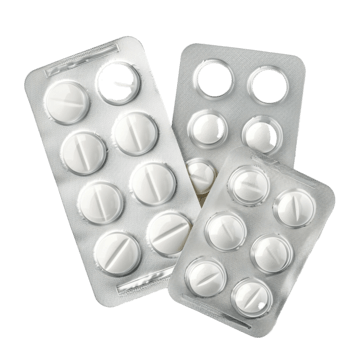Clindamycin Hydrochloride

Clindamycin Hydrochloride 150mg, 300mg
Clindamycin Hydrochloride is an antibiotic medication used to treat a variety of bacterial infections, particularly those caused by anaerobic bacteria and certain protozoa. It works by inhibiting bacterial protein synthesis, thereby stopping the growth and reproduction of bacteria. Clindamycin is commonly prescribed for conditions such as skin infections, respiratory tract infections, and some dental infections, offering an effective alternative for patients who are allergic to penicillin.
Order NowDescription
Clindamycin Hydrochloride is a lincosamide antibiotic used to treat a variety of bacterial infections. It works by inhibiting bacterial protein synthesis, effectively slowing down or stopping the growth of bacteria. It is especially effective against certain types of anaerobic bacteria and some protozoa.
Uses / Indications
- Skin infections (e.g., acne and cellulitis)
- Respiratory tract infections (e.g., pneumonia and lung abscess)
- Bone infections (osteomyelitis)
- Intra-abdominal infections, when combined with other antibiotics
- Dental infections
- Certain types of pelvic inflammatory disease
Dosage and Administration
Adults:
Typical dosage is 150 mg to 450 mg taken orally every 6 to 8 hours. The exact dosage depends on the severity of the infection and the individual patient’s condition.
Children:
The dosage for children is based on body weight and the specific condition being treated, typically ranging from 8 to 25 mg/kg per day, divided into doses.
Note: Always follow your healthcare provider’s instructions regarding dosage and duration of treatment.
How It Works (Mechanism of Action)
Clindamycin Hydrochloride works by binding to the 50S subunit of bacterial ribosomes, inhibiting protein synthesis. By preventing bacteria from producing essential proteins, it effectively stops bacterial growth and helps the body to combat the infection.
Side Effects
Common side effects:
- Nausea or vomiting
- Diarrhea
- Abdominal pain
- Rash
Rare/serious side effects:
- Severe allergic reactions (rash, itching, swelling)
- Clostridium difficile-associated diarrhea (CDAD)
- Liver dysfunction or jaundice
Seek medical attention if serious side effects occur.
Precautions / Warnings
- Inform your doctor if you have a history of gastrointestinal diseases, especially colitis
- Use caution if you are pregnant or breastfeeding
- Complete the full course of medication, even if symptoms improve, to prevent the development of antibiotic resistance
Drug Interactions
Clindamycin Hydrochloride may interact with:
- Other antibiotics (may reduce efficacy)
- Neuromuscular blocking agents (increased risk of respiratory depression)
- Certain medications that affect liver function
Always inform your healthcare provider about any other medications or supplements you’re taking.
Storage Instructions
- Store at room temperature (20°C–25°C / 68°F–77°F)
- Keep away from moisture, heat, and direct light
- Keep out of reach of children
Missed Dose / Overdose
Missed a dose?
Take it as soon as you remember. If it’s close to the time for your next dose, skip the missed dose and continue with your regular schedule. Do not double up.
Overdose symptoms:
- Severe nausea or vomiting
- Abdominal cramps
- Severe diarrhea
- Heart rhythm disturbances (in severe cases)
Contact a poison control center or seek emergency medical help immediately.
Contraindications
- Allergy to clindamycin or lincomycin
- History of inflammatory bowel disease
- Severe liver impairment
Brand Names / Alternatives
- Cleocin
- Dalacin
- Clindamax (topical)
- Generic name: Clindamycin Hydrochloride

